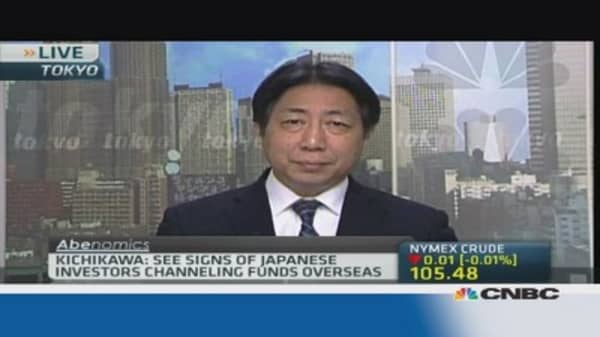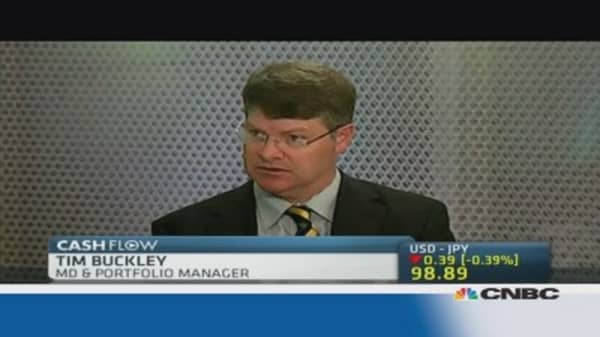Founder Securities, Haitong Securities and Agricultural Bank of China fell 1 percent each after the seven-day repurchase rate spiked to around 4 percent.
"There has been plenty of talk around China's credit recently as the rapid build-up in credit threatens to be a bubble following the changes in policies by the new government. Analysts feel the diminishing effect of credit growth on China's growth is a reason for concern," added Shamu.
(Read more: Is a big China currency move in the works?)
Material stocks rallied after the Ministry of Industry and Information technology ordered companies to close outdated capacity. China's largest cement producer Anhui Conch Cement was higher by 3 percent.
Sydney up 0.1%
Australia's benchmark index pared gain after briefly rising above 5,060 points to hit a new two-month high thanks to a rally in banking stocks. Westpac led gains by 1.5 percent while Australia and New Zealand Banking rose 1 percent.
Miners were unable to track gains in iron ore prices on fears of softer growth in China. Mount Gibson closed down 3.4 percent and Atlas Iron fell 2.3 percent.
(Watch now: Australia corporate earnings to pick up: Pro)
The index posted gains of 1.4 percent for the week.
Kospi flat
The yen's strength boosted South Korean exporter stocks and helped the index trade within 6 points of a new six-week high.
Hyundai Motor and Kia Motors added half a percent, lifted by a stronger-than-expected profit from U.S. peer General Motors.
But modest losses in blue-chip stocks capped gains. Samsung Electronics lost 0.9 percent after reporting April-June operating profit rose 47.5 percent from a year before, but warned the smartphone market is slowing down.
— By CNBC.com's Nyshka Chandran. Follow her on Twitter @NyshkaCNBC




